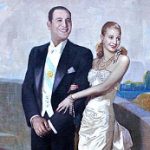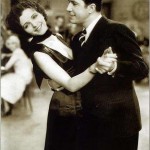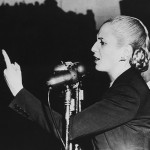 There is no more powerful or persistent spectacle in Latin American political history than populism, which stages of an entire people. Part of populism’s power is that it is not easy to pin down, that it resists precise definition. It is a gesture that divides the social world into two: the people and the elite. And it identifies wholeheartedly with the people, a collective subject in the first-person plural (“we”) that is the origin and foundation of society, but which for some reason has been denied its rights by an illegitimate and untrustworthy elite. Then populism tells us it will put things back in their rightful place.
There is no more powerful or persistent spectacle in Latin American political history than populism, which stages of an entire people. Part of populism’s power is that it is not easy to pin down, that it resists precise definition. It is a gesture that divides the social world into two: the people and the elite. And it identifies wholeheartedly with the people, a collective subject in the first-person plural (“we”) that is the origin and foundation of society, but which for some reason has been denied its rights by an illegitimate and untrustworthy elite. Then populism tells us it will put things back in their rightful place.
Latin Americans are the past masters of populist politics. And among Latin Americans, none do populism better than the Argentines.
10. Power to the People
There is no more powerful or persistent spectacle in Latin American political history than populism, which stages an entire people.
- Alexander Dawson, “Power to the People”. Latin America Since Independence: A History with Primary Sources. 2nd Edition. New York: Routledge, 2014. 207-240.
Note that each chapter of the textbook comes with online resources on the publisher's website. Simply click on the relevant tab for this week's reading.
Documents:
- Foster Hailey, "Peronists Will Head Argentine Ticket" (1951). (Dawson 228)
- The Peronist Version of the Speech. (Dawson 229-231)
- The Renunciamiento as Compiled from Newsreel and Archival Footage. (Dawson 231-235)
- Eva Perón's Final Response (1951). (Dawson 235-236)
“Power to the People”
Power to the People: Peronism
Jacob Fischer Schmidt, Melissa Funes Fedosenko, Thalia Ramage, and Liz Vermunt:
“Power to the People”
Michelle González Báez and another student:
Music and Nation in Latin America
Alec Dawson (Professor, History and International Studies, Simon Fraser University), author of Latin America Since Independence: A History with Primary Sources, discusses the ways in which certain musical traditions evoke a sense of national longing in Latin America.
This podcast is designed to complement chapter seven of his textbook.
Populism
Alec Dawson (Professor, History and International Studies, Simon Fraser University), author of Latin America Since Independence: A History with Primary Sources, discusses the nature of populism in Latin America, especially during the 1930s and 1940s.
This podcast is designed to complement chapter seven of his textbook.
Videos of Evita Perón:
Madonna as Evita:
Juan Perón's Second Coming:
Plus a bit of Hugo Chávez...
My General, before you stand the people, and I want to take the opportunity to thank all those who are humble, all the workers, all the women, children, and men of our Father- land, who in their heart of hearts have praised a woman’s name. I am a humble woman who loves them deeply and who doesn’t mind devoting her life to them if it means bringing a little bit of happiness to one household in her Nation. I will always do what the people ask of me, [applause] . . . but I say to my fellow workers, just as I told them five years ago, that I would rather be Evita than the President’s wife if that Evita were uttered to soothe the pain in some household in our Fatherland.
- Tomás Eloy Martínez, Santa Evita, trans. Helen Lane. New York: Vintage, 1997.
- Matthew B. Karush and Oscar Chamosa (eds.), The New Cultural History of Peronism: Power and Identity in Mid-Twentieth-Century Argentina. Durham, NC: Duke University Press, 2010.
- Benjamin Moffitt, The Global Rise of Populism: Performance, Political Style, and Representation. Stanford: Stanford University Press, 2016.
- Osvaldo Soriano, A Funny Dirty Little War, trans. Nick Caistor. London: Readers International, 1986.
- What is the (or a?) "people"? Consider some of the ways in which we talk about the people or the popular, in everyday as well as in political discourse. What images, ideas, or affects are associated with the word in different contexts?
- Why does the call for "people power" or "power to the people" somehow seem so obvious? What are the roots or ground of this obviousness?
- Is "populism in power" a contradiction in terms? Why, or why not?
- What does Evita's speech tell us about the appeal of Peronism? What are its rhetorical (or other) gambits and strategies?
- Compare the various representations of Evita Perón's "renunciamiento," both audiovisual (the newsreel, the musical) and written (the newspaper account, the transcript, etc.). What are the strengths and weaknesses of each? In what ways could we say that any one is more "true" than the others?
- In what ways might populism today differ from the "classic" populism of the past century, in either form or content?


